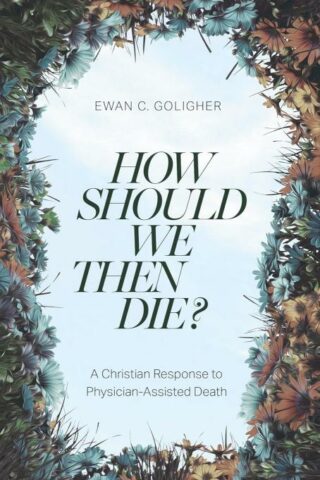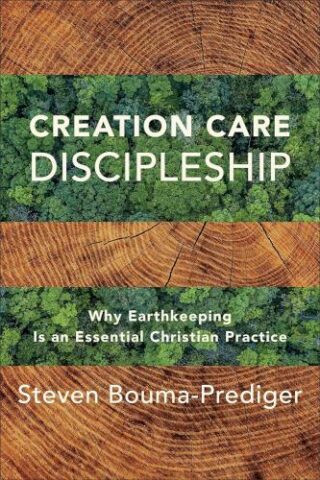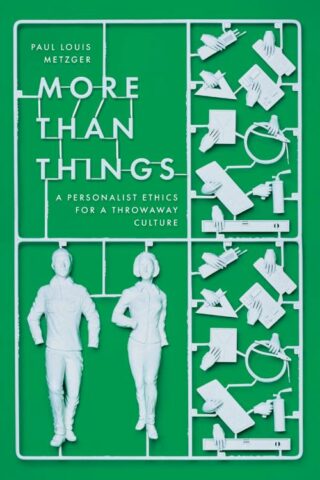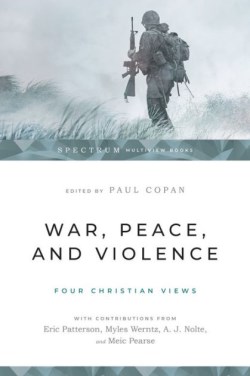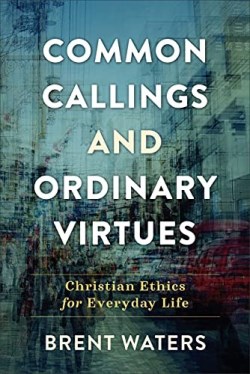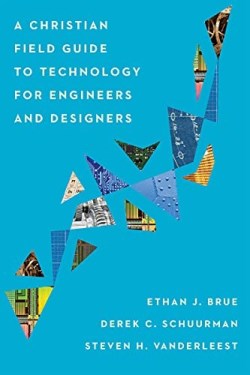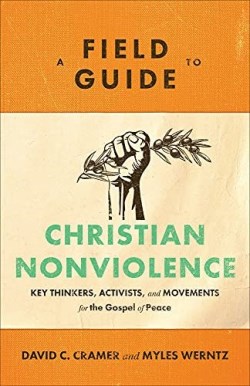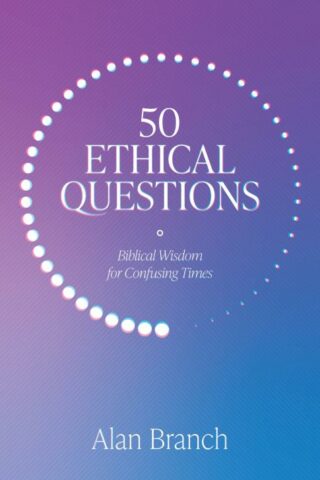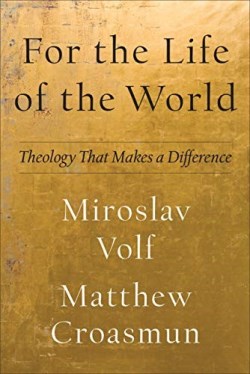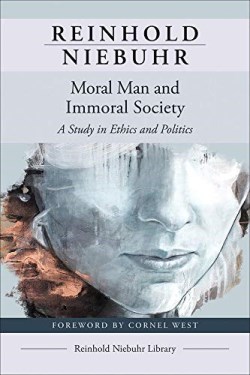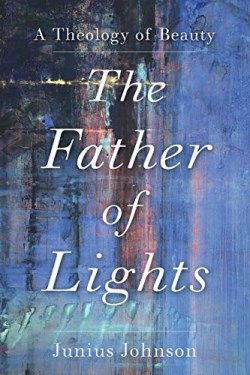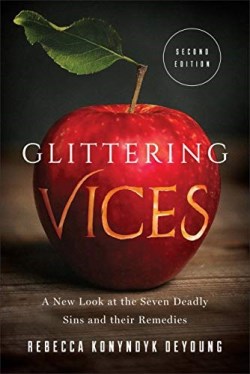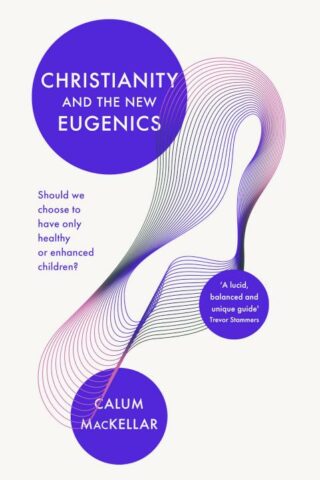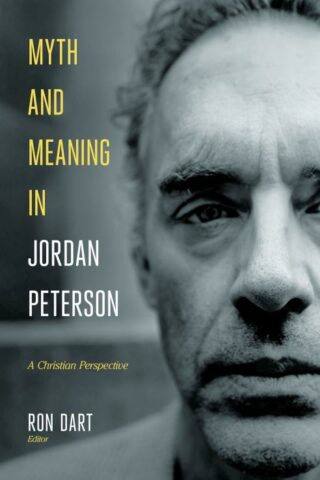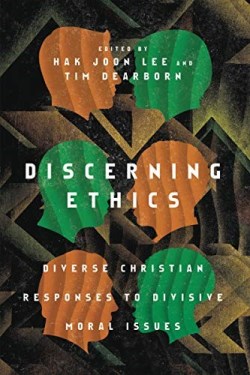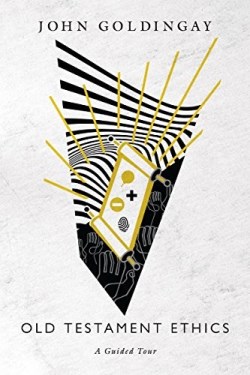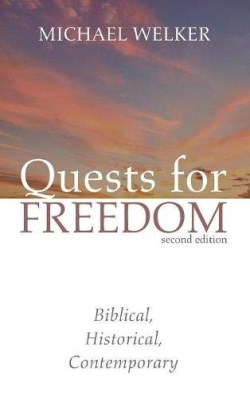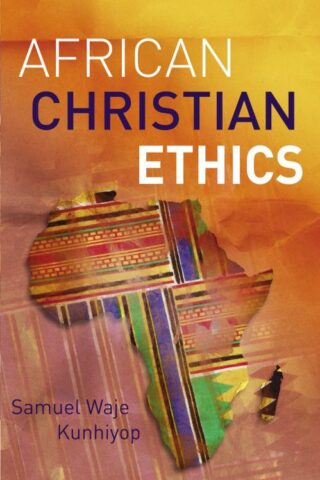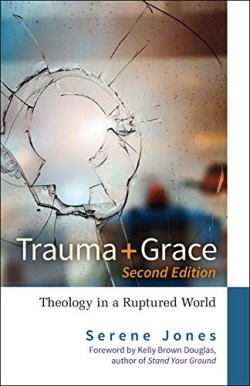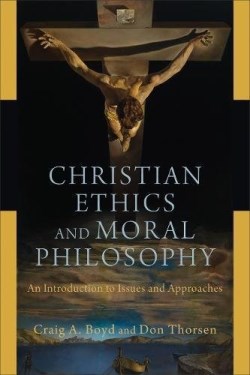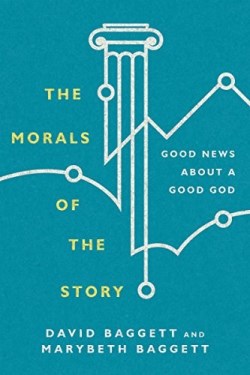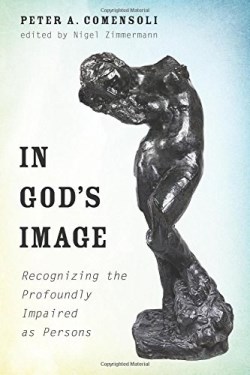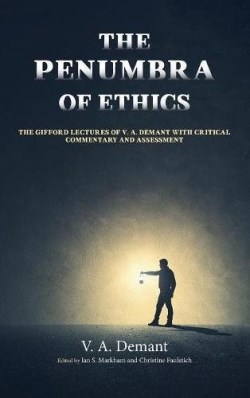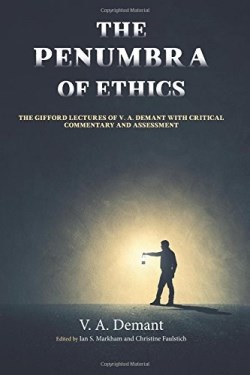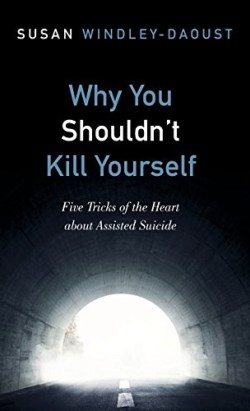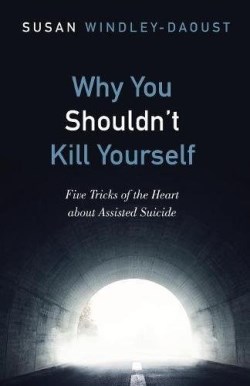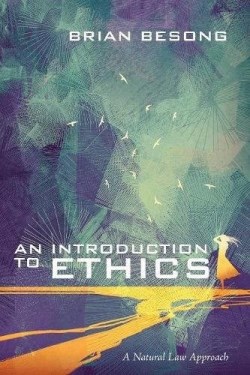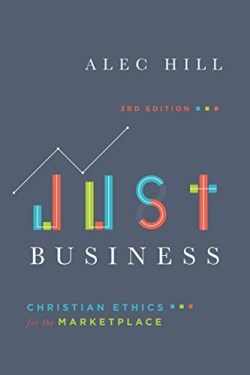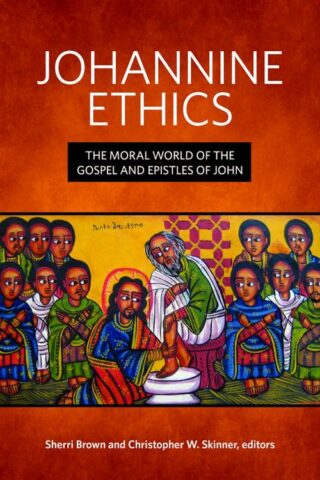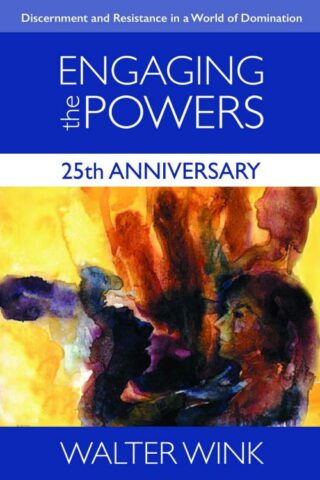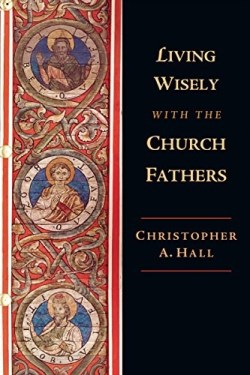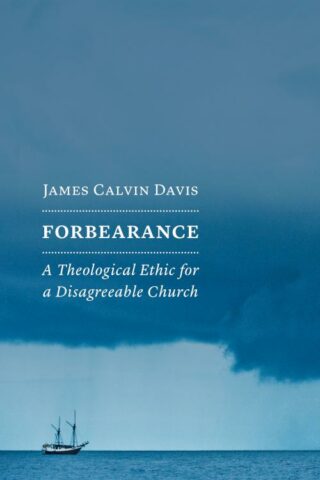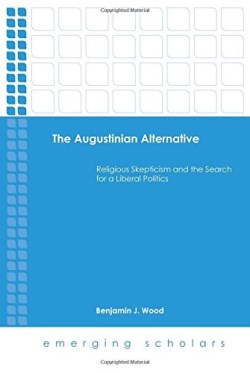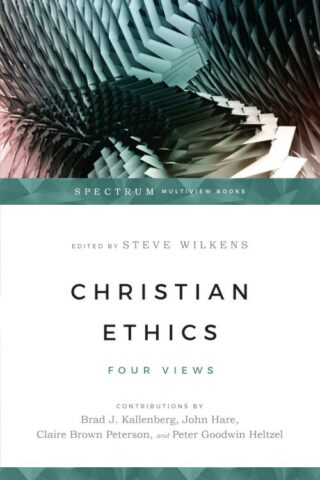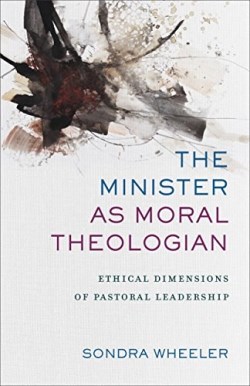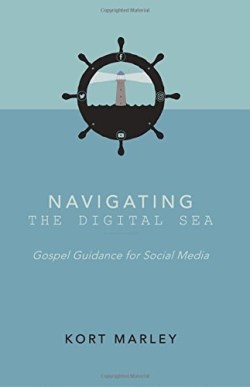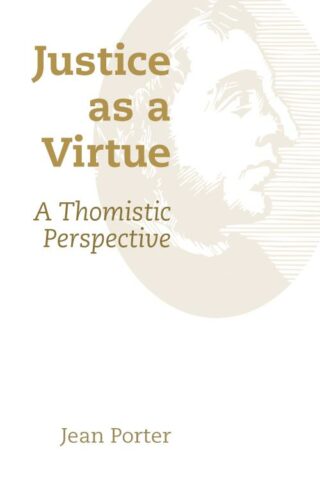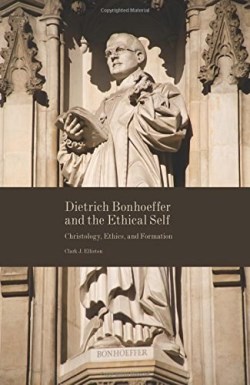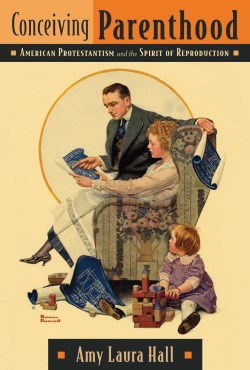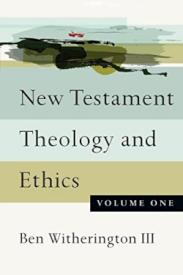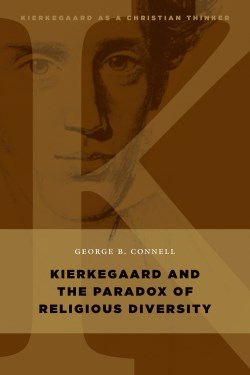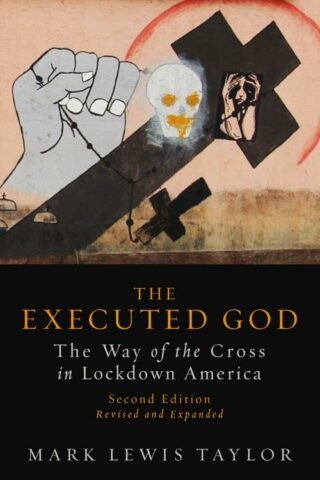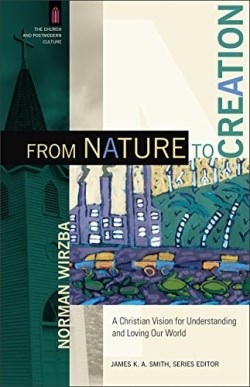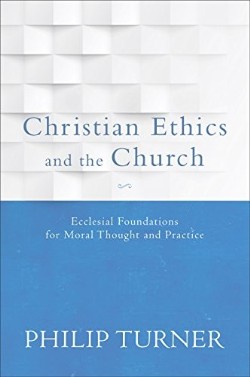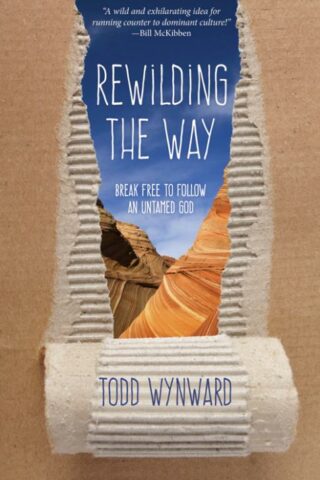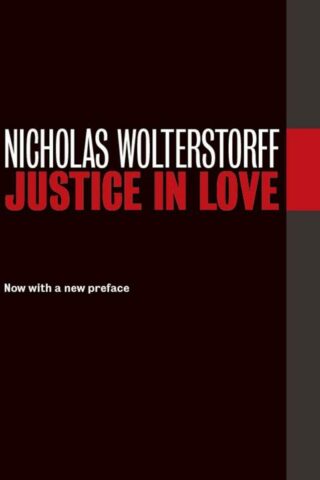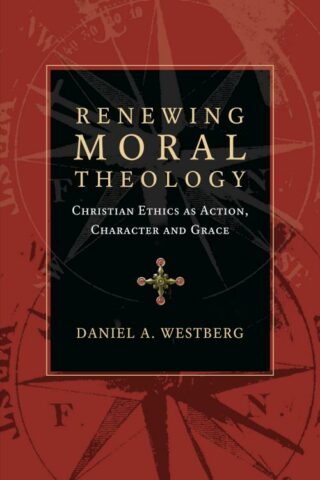Ethics
Showing 1–50 of 239 results
-
How Should We Then Die
$18.99Add to cart“My times are in thy hand.”
*Explains why physician-assisted death is attractive
*Makes a case for the value of life and wrongness of killing
*Argues from general revelation and Scripture
*Helps Christians undercut the logic of euthanasiaAs more people accept the practice of physician-assisted death, Christians must decide whether to embrace or oppose it. Is it ethical for physicians to assist patients in hastening their own death? Should Christians who are facing death accept the offer of an assisted death?
In How Should We then Die?, physician Ewan Goligher draws from general revelation and Scripture to persuade and equip Christians to oppose physician-assisted death. Euthanasia presumes what it is like to be dead. But for Christians, death is not the end. Christ Jesus has destroyed death and brought life and immortality through the gospel.
-
Creation Care Discipleship
$49.99Add to cartAlthough our planet faces numerous ecological crises, including climate change, many Christians continue to view their faith as primarily a “spiritual” matter that has little relationship to the world in which we live. But Steven Bouma-Prediger contends that protecting and restoring our planet is part and parcel of what it means to be a Christian.
Making his case from Scripture, theology, and ethics and including insights from the global church, Bouma-Prediger explains why Christians must acknowledge their identity as earthkeepers and therefore embrace their calling to serve and protect their home planet and fellow creatures. To help readers put an “earthkeeping faith” into practice, he also suggests numerous practical steps that concerned believers can take to care for the planet.
Bouma-Prediger unfolds a biblical vision of earthkeeping and challenges Christians to view care for the earth as an integral part of Christian discipleship.
-
More Than Things
$48.00Add to cartWe live in a culture of commodification.
People are too often defined by what they do or own; they’re treated as means to an end or cogs in a machine. What goes missing is a deep sense of personhood–the belief that all humans are unique subjects with inherent worth and the right to self-determination in authentic communion with others.
In a world dominated by things, Paul Louis Metzger argues, we must work hard to account for one another’s personhood. We need to cultivate relational structures that honor every human’s dignity in vital interpersonal community. The theological and philosophical framework known as personalism can help guide us toward such a culture. Drawing from a wide range of thought leaders, including Martin Luther King Jr. and Pope John Paul II, Metzger presents a personalist moral vision founded on the Christian ideals of faith, hope, and love. He demonstrates how this moral compass can help us navigate a pluralistic world by applying it to a variety of pressing ethical issues, including abortion, genetic engineering, immigration, drone warfare, and more.
Ultimately human personhood begins with the personal, triune God, who invites us to live more fully as human beings. When we refuse to reduce our fellow humans–and ourselves–to mere abstractions or objects, we follow the example of Jesus in honoring the value of every person and of creaturely life as a whole.
-
War Peace And Violence
$26.00Add to cartIn a world of war, terrorism, and other geopolitical threats to global stability, how should committed Christians honor Jesus Christ and his Word? How should Christians think and act when it comes to church-state relations, the preservation of order, the practice of just peacemaking, and the use of coercive force?
In this volume in IVP Academic’s Spectrum series, four contributors–experts in Christian ethics, political philosophy, and international affairs–offer the best of current Christian thinking on issues of war and peace. They present four distinct views:
*Eric Patterson, just war view
*Myles Werntz, nonviolence view
*A. J. Nolte, Christian realist view
*Meic Pearse, church historical viewEach contributor makes a case for his own view and responds to the others, highlighting complexities and real-world implications of the various perspectives. Edited and with an introduction and conclusion by the philosopher Paul Copan, this book provides a helpful orientation to the key positions today.
-
Common Callings And Ordinary Virtues
$27.99Add to cartEvery day, we do commonplace things and interact with ordinary people without giving them much thought. This volume offers a theological guide to thinking Christianly about the ordinary nature of everyday life. Leading ethicist Brent Waters shows that the activities and relationships we think of as mundane are actually expressions of love of neighbor that are vitally important to our wellbeing. We live out the Christian gospel in the contexts that define us and in the routine chores, practices, activities, and social settings that give ordinary life meaning. It is in those contexts that we discover what we were created for, to be, and to become.
-
Christian Field Guide To Technology For Engineers And Designers
$28.00Add to cartOur technology shapes the way we live, interact, work, play, and even worship.
Technology and its power are both old and new–as is the wisdom we need to envision, design, build, and use it well. For Christians passionate about developing technology, it’s not always clear how their faith and work intersect. How can designing and using technology actually be a way of loving God and our neighbors? Veteran engineers and teachers Ethan Brue, Derek Schuurman, and Steve VanderLeest provide a field guide for fellow explorers working with technology. Using numerous case studies, historical examples, and personal stories, they explore issues such as:
*biblical themes and passages that relate to technology
*the ethics and norms involved in technology design
*how engineering and technology tap into human dreams for a better worldAlong the way they acknowledge the challenges arising from technology but also point to the wonderful possibilities it offers us and its ability to contribute to the common good. For Christians studying and working in engineering, computer science, technical design, architecture, and related fields, this book is packed with wisdom and practical guidance. By sharing what they have learned, the authors encourage readers to ask harder questions, aspire to more noble purposes, and live a life consistent with their faith as they engage with technology.
-
Field Guide To Christian Nonviolence
$39.99Add to cartChristian nonviolence is not a settled position but a vibrant and living tradition. This book offers a concise introduction to diverse approaches to, proponents of, and resources for this tradition. It explores the myriad biblical, theological, and practical dimensions of Christian nonviolence as represented by a variety of twentieth- and twenty-first-century thinkers and movements, including previously underrepresented voices. The authors invite readers to explore this tradition and discover how they might live out the gospel in our modern world.
-
50 Ethical Questions
$16.99Add to cartWe cannot escape ethical questions. What Christians need is guidance to think well. In 50 Ethical Questions, J. Alan Branch addresses pointed questions regarding ethics, sexuality, marriage and divorce, bioethics, and Christian living. Readers will find biblical and reasonable guidance on their questions, including:
What are the differences between individual and systemic racism?
I’ve been invited to a same–sex wedding. Should I attend?
Should Christians use vaccines from cell lines derived from aborted babies?
I’m a Christian in an abusive marriage. What should I do?
Is it morally permissible for a Christian to conceal–carry a firearm?
With Branch’s help, you can navigate ethical challenges with care and conviction.
-
For The Life Of The World
$19.99Add to cartChristianity Today 2020 Book Award (Award of Merit, Theology/Ethics)Outreach 2020 Recommended Resource of the Year (Theology and Biblical Studies)
The question of what makes life worth living is more vital now than ever. In today’s pluralistic, postsecular world, universal values are dismissed as mere matters of private opinion, and the question of what constitutes flourishing life–for ourselves, our neighbors, and the planet as a whole–is neglected in our universities, our churches, and our culture at large. Although we increasingly have technology to do almost anything, we have little sense of what is truly worth accomplishing.
In this provocative new contribution to public theology, world-renowned theologian Miroslav Volf (named “America’s New Public Intellectual” by Scot McKnight on his Jesus Creed blog) and Matthew Croasmun explain that the intellectual tools needed to rescue us from our present malaise and meet our new cultural challenge are the tools of theology. A renewal of theology is crucial to help us articulate compelling visions of the good life, find our way through the maze of contested questions of value, and answer the fundamental question of what makes life worth living.
-
Cannabis And The Christian
$12.99Add to cartWhat does the Bible say about marijuana? If it doesn’t directly address marijuana, how can Christians know what to make of the legalization of recreational cannabis and the advocacy of medical marijuana?
In the past, Christians could easily answer the question of whether or not it was permissible to use cannabis by deferring to state prohibitions. We could simply say, “it’s against the law.” Today, that answer is no longer possible. Christians are now forced to do what they should have been doing all along: Think like disciples of the Lord Jesus Christ and bring to bear the wisdom of the sufficient Word of God.
Since cannabis is not explicitly mentioned in the Bible, we must understand what it is and how it affects the user. We also must understand what the Bible says about discipleship, healing, suffering, and what it is to be human. Only then can we answer the critical questions regarding the recreational use and the medical use of cannabis.
In Cannabis and the Christian, Todd Miles gives readers:
*Biblical wisdom applied to the question of recreational cannabis
*Biblical wisdom related to the medical use of cannabis
*A grid to think through other ethical questions that aren’t directly addressed in the Bible
*Confidence to respond to challenging issues standing on the sufficient Word of God -
Moral Man And Immoral Society
$44.00Add to cartNiebuhr argues that using moral persuasion and shaming to affect the behavior of such collectives as corporations and nation states is fruitless, as these groups will inevitably seek to promote only their self-interest. He calls for a realistic assessment of group behavior and enumerates how individual morality can mitigate social immorality.
One of the theological classics of the twentieth century, Niebuhr’s Moral Man and Immoral Society argues that using moral persuasion and shaming to affect the behavior of such collectives as corporations and nation states is fruitless, as these groups will inevitably seek to promote only their self-interest. He calls for a realistic assessment of group behavior and enumerates how individual morality can mitigate social immorality.
This edition includes a foreword by Cornel West that explores the continued interest in Niebuhr’s thought and its contemporary relevance.
-
Father Of Lights
$32.00Add to cartEvery good giving and every perfect gift is from on high, coming down from the Father of lights, with whom there is no variation or shadow of turning (James 1:17). This verse conveys a powerful image of God as the source and referent of all beauty. This book demonstrates how the experience of beauty is related to our inherent longing for the God who is reflected in such moments. Richly informed by Junius Johnson’s expertise on Bonaventure and von Balthasar, the book offers a robust, full-orbed theology of beauty, showing how it has functioned as a theological concept from biblical times to the present day.
-
Glittering Vices Second Edition
$23.99Add to cartDrawing on centuries of wisdom from the Christian ethical tradition, this book takes readers on a journey of self-examination, exploring why our hearts are captivated by glittery but false substitutes for true human goodness and happiness. The first edition sold 35,000 copies and was a C. S. Lewis Book Prize award winner. Now updated and revised throughout, the second edition includes a new chapter on grace and growth through the spiritual disciplines. Questions for discussion and study are included at the end of each chapter.
-
Christianity And The New Eugenics
$18.99Add to cartCalum MacKellar offers an accessible, inter-disciplinary analysis, blending science, history and Christian theology, enabling readers to develop an informed opinion about the topics encountered. To some degree, all members of society are affected by these new scientific developments in human reproduction, regardless of background, and will thus benefit from such a survey.
As the science of selection develops in the context of human reproduction, features such as the genetic improvement of health, athletic prowess or intelligence may become accepted grounds for choosing future children. Thus, the biological enhancement of the human race, so central to the discredited eugenic regimes of the twentieth century, may now be resurfacing under a new guise. Unnerving similarities between earlier eugenic selection programmes and those now being proposed in the context of twenty-first century human reproduction, with the development of procedures such as gene editing, suggest that a more ‘sanitised’ era of a new eugenics has dawned. There is, therefore, an urgent need to consider and evaluate both current and future selection practices from a Christian perspective based on Scripture. Calum MacKellar offers an accessible, inter-disciplinary analysis, blending science, history and Christian theology, enabling readers to develop an informed opinion about the topics encountered. To some degree, all members of society are affected by these new scientific developments in human reproduction, regardless of background, and will thus benefit from such a survey.
-
Myth And Meaning In Jordan Peterson
$18.99Add to cartPopular philosopher Jordan Peterson has captured the imagination of Western world.
For some, Peterson represents all that is wrong with patriarchal culture; for others, he is the Canadian academic prophet who has come to save civilization from dizzying confusion. Regardless of how one feels about him, his influence in North America–and beyond–is difficult to deny.
While the “Peterson phenomenon” has motivated numerous articles and responses, much of what has been written is either excessively fawning or overly critical. Little has been produced that explores Peterson’s thought–especially his immensely popular 12 Rules for Life–within the context of his overall context and scholarly output. How is one to understand the ascendency of Jordan Peterson and why he’s become so popular? Does his earlier Maps of Meaning shed light on how one might understand his worldwide bestseller, 12 Rules for Life?In Myth and Meaning in Jordan Peterson, scholars across various disciplines explore various aspects of Jordan Peterson’s thought from a Christian perspective. Both critical and charitable, sober-minded and generous, this collection of ten essays is a key resource for those looking to faithfully engage with Jordan Peterson’s thought.
-
Discerning Ethics : Diverse Christian Responses To Divisive Moral Issues
$32.00Add to cartThe number of ethical issues that demand a response from Christians today is almost dizzying. How can Christians navigate such matters? With an unflinching yet irenic approach, this volume invites engagement with the biggest ethical issues by drawing on real-life experiences and offering a range of responses to some of the most challenging moral questions confronting the church today.
-
Old Testament Ethics
$30.00Add to cartWhat is ethics? Ethics is not merely about tricky situations or hot topics. Instead, ethics asks questions about what sort of people we are, how we think, what sort of things we do and don’t do, and how we ought to live our everyday lives. How might we learn ethics from the Old Testament? Instead of searching for support for our positions or pointing out problems with certain passages, trusted guide John Goldingay urges us to let the Old Testament itself set the agenda. In this volume, readers will encounter what the Old Testament teaches about relationships, work, Sabbath, character, and more. Featuring Goldingay’s own translation and discussion questions for group use, Old Testament Ethics: A Guided Tour is a resource for ethics like no other. Topically organized with short, stand-alone chapters, this book is one to keep close at hand.
-
Quests For Freedom Second Edition
$90.00Add to cartThis book is the result of intensive, multiyear international and interdisciplinary cooperation. From many perspectives, the book’s contributors address themes of freedom and slavery; self-determination and concepts of freedom; God-given and imprinted freedom; freedom as an ethos of belonging and solidarity; and relations between freedom, human rights, and theological orientation.
-
African Christian Ethics
$24.99Add to cartThis is an introduction to African Christian ethics for Christian colleges and Bible schools. The book is divided into two parts. The first part deals with the theory of ethics, while the second discusses practical issues. The issues are grouped into the following six sections: Socio-Political Issues, Financial Issues, Marriage Issues, Sexual Issues, Medical Issues, and Religious Issues. Each section begins with a brief general introduction, followed by the chapters dealing with specific issues in that area. Each chapter begins with an introduction, discusses traditional African thinking on the issue, presents an analysis of relevant biblical material, and concludes with some recommendations. There are questions at the end of each chapter for discussion or personal reflection, often asking students to reflect on how the discussion in the chapter applies to their ministry situation.
-
Trauma And Grace
$32.00Add to cartThis substantive collection from noted scholar Serene Jones explores recent work in the field of trauma studies. Central to its overall theme is an investigation of how individual and collective violence affect one’s capacity to remember, to act, and to love; how violence can challenge theological understandings of grace; and even how the traumatic experience of Jesus’ death is remembered. Jones focuses on the long-term effects of collective violence on abuse survivors, war veterans, and marginalized populations and the discrete ways in which grace and redemption may be exhibited in each context. At the heart of each essay are two deeply interrelated faith claims that are central to Jones’s understanding of Christian theology: (1) We live in a world profoundly broken by violence, and (2) God loves this world and desires that suffering be met by words of hope, love, and grace. This timely and relevant cutting-edge book is the first trauma study to directly take into account theological issues.
-
Christian Ethics And Moral Philosophy
$25.00Add to cartThis introductory textbook presents Christian philosophical and theological approaches to ethics. Combining their expertise in philosophy and theology, the authors explain the beliefs, values, and practices of various Christian ethical viewpoints, addressing biblical teachings as well as traditional ethical theories that contribute to informed moral decision-making. Each chapter begins with Words to Watch and includes a relevant case study on a vexing ethical issue, such as caring for the environment, human sexuality, abortion, capital punishment, war, and euthanasia. End-of-chapter reflection questions, illustrations, and additional information tables are also included.
-
Love In The Void
$12.00Add to cartSimone Weil, the great mystic and philosopher for our age, shows where anyone can find God.
Why is it that Simone Weil, with her short, troubled life and confounding insights into faith and doubt, continues to speak to today’s spiritual seekers? Was it her social radicalism, which led her to renounce privilege? Her ambivalence toward institutional religion? Her combination of philosophical rigor with the ardor of a mystic?
Albert Camus called Simone Weil “the only great spirit of our time.” Andre Gide found her “the most truly spiritual writer of this century.” Her intense life and profound writings have influenced people as diverse as T. S. Eliot, Charles De Gaulle, Pope Paul VI, and Adrienne Rich.
The body of work she left–most of it published posthumously–is the fruit of an anguished but ultimately luminous spiritual journey.
After her untimely death at age thirty-four, Simone Weil quickly achieved legendary status among a whole generation of thinkers. Her radical idealism offered a corrective to consumer culture. But more importantly, she pointed the way, especially for those outside institutional religion, to encounter the love of God – in love to neighbor, love of beauty, and even in suffering.
-
Morals Of The Story
$28.00Add to cartThe Players
The Playbill: Our Focus And Intended Audience
Spotlight: Socrates And Paul In AthensAct I: Setting The Stage
1. The Comeback Of Moral Apologetics
2. Stubborn Moral Facts
3. Pre-Twentieth-Century History Of Moral Apologia
4. Moral Arguments In The Twentieth Century And BeyondIntermission: Answering Euthyphro
Act II: The Main Characters
5. Moral Goodness
6. Moral Obligations
7. Moral Knowledge
8. Moral Transformation
9. Moral ProvidenceAct III: Enacting The Comedy
10. A Gala PerformanceEncore: A Play At Mars Hill
Curtain Call
Additional Resources
General Index
Scripture IndexAdditional Info
What arguments best affirm the existence of God?Do our moral obligations and choices support a belief in God? For centuries, the moral argument-the affirmation that morality is best explained by the existence of God-has been a powerful apologetic tool.
In this volume, husband and wife duo David Baggett and Marybeth Baggett offer a dramatic, refreshing, and even playful reconsideration of the moral argument. Tracing both its historical importance and its ongoing relevance, they contend that the moral argument helps to explain the existence of a good God and contributes to our own ongoing spiritual transformation.
-
In Gods Image
$33.00Add to cartIn God’s Image: Recognizing the Profoundly Impaired as Persons is a bold Catholic argument in defense of the profoundly impaired. While a range of theological voices can now be heard speaking up on behalf of those who live their lives at the extremes of the human condition, few voices have been explicitly Catholic. Comensoli draws on the irreplaceable contribution of St. Thomas Aquinas to forge an engagement with one of the leading thinkers in the theology of the disabled, Professor Hans Reinders. While recognizing the crucial contribution that Reinders has made, Comensoli situates our perception of the cognitively impaired within the horizon of God’s own image, refusing a reduction of the substantialist position the Catholic tradition has always valued. This is linked to the fresh and countercultural community life pioneered by Jean Vanier, founder of the L’Arche communities. For Comensoli, the profoundly impaired are persons whose personhood cannot be recognized outside of the condition of their impairment, and through which God’s Image is perceived in all its paradoxical implications.
-
Penumbra Of Ethics
$68.00Add to cartRev. Vigo Auguste Demant (1893-1983) was a significant theologian and social commentator of the first half of the twentieth century. This book contains his up-until-now unpublished Gifford Lectures, in which Demant provides cultural analysis as he attempts to address why humanity struggles so much with modernity and living in the contemporary world. The lectures have additional notes and commentary to make them comprehensible, since not all of them are complete. The first chapters set Demant in his context and the final section provides assessment of both his ideas and his impact. Although Demant died in 1983, his ideas continue to prove influential to thinkers and theologians today.
-
Penumbra Of Ethics
$43.00Add to cartRev. Vigo Auguste Demant (1893-1983) was a significant theologian and social commentator of the first half of the twentieth century. This book contains his up-until-now unpublished Gifford Lectures, in which Demant provides cultural analysis as he attempts to address why humanity struggles so much with modernity and living in the contemporary world. The lectures have additional notes and commentary to make them comprehensible, since not all of them are complete. The first chapters set Demant in his context and the final section provides assessment of both his ideas and his impact. Although Demant died in 1983, his ideas continue to prove influential to thinkers and theologians today.
-
Why You Shouldnt Kill Yourself
$40.00Add to cartSuicide, for years, has been a public health crisis in the Western world. Yet more and more states and countries are allowing physician assisted suicide or euthanasia. Have you wondered whether it is actually wrong to end your life if you are mortally ill? Susan Windley-Daoust engages in an extended discussion with a game dialogue partner who thinks that there are five good reasons to employ physician-assisted suicide–and proves those common reasons (or “”tricks of the heart””) may be well-intended, but make no moral or spiritual sense. She argues that PAS is based in medical ignorance, a utilitarian understanding of the human, and a spiritual vacuum–and the Christian Church needs to engage these realities quickly and directly by recovering the art of dying well. This book is written to all those considering the issue, from those considering PAS as an option in their own lives, to those called upon to vote on the legality of PAS in their states, to those who minister to the dying.
-
Why You Shouldnt Kill Yourself
$20.00Add to cartSuicide, for years, has been a public health crisis in the Western world. Yet more and more states and countries are allowing physician assisted suicide or euthanasia. Have you wondered whether it is actually wrong to end your life if you are mortally ill? Susan Windley-Daoust engages in an extended discussion with a game dialogue partner who thinks that there are five good reasons to employ physician-assisted suicide–and proves those common reasons (or “”tricks of the heart””) may be well-intended, but make no moral or spiritual sense. She argues that PAS is based in medical ignorance, a utilitarian understanding of the human, and a spiritual vacuum–and the Christian Church needs to engage these realities quickly and directly by recovering the art of dying well. This book is written to all those considering the issue, from those considering PAS as an option in their own lives, to those called upon to vote on the legality of PAS in their states, to those who minister to the dying.
-
Introduction To Ethics
$32.00Add to cartIt is natural for us to wonder what should I do, and why? And although a combination of common sense and upbringing aids us in answering our questions, it is also natural for us to seek answers that are grounded in something deeper and more enduring than our personal dispositions and those of our parents. We seek a genuinely good life and the practical wisdom necessary to arrive at happiness. In this Introduction to Ethics, Brian Besong presents a comprehensive and contemporary introduction to the practical wisdom handed down to us by Aristotle, St. Thomas Aquinas, and many others–a position now commonly called “”natural law.”” Written as a beginner’s guide, the book systematically explores a range of moral issues including moral knowledge, happiness, right and wrong action, and virtues, to name a few. Introduction to Ethics explains in a lively way how natural law provides principled and persuasive answers to our most fundamental moral questions.
-
Just Business : Christian Ethics For The Marketplace
$34.00Add to cartPart 1: Concepts
1. A Christian Ethic For Business
2. Holiness
3. Justice
4. LovePart 2: False Exits
5. Dual Morality
6. Law
7. AgencyPart 3: Topics
8. Honesty And Deception (Part 1)
9. Honesty And Deception (Part 2)
10. Concealment And Disclosure
11. Employer-Employee Relations
12. Employee Dignity
13. Discrimination And Affirmative Action
14. The Environment
15. Property
16. International BusinessEpilogue: A Theocentric Approach To Business Ethics
Notes
IndexAdditional Info
When the daily business news breaks away from stories of profit and loss, it often shines a spotlight on ethical failures. But Christians aim to be ethical in all the areas of daily life and work-not just when the spotlight is on them. For those facing the many questions and quandaries of doing business with ethical integrity, Alec Hill offers a place to begin.In this third edition of a popular textbook on business ethics, Hill carefully explores the foundational Christian concepts of holiness, justice, and love. These keys to God’s character, he argues, are also the keys to Christian business ethics. Hill then shows how some common responses to business ethics fall short of a fully Christian mindset. Using penetrating case studies on such pressing topics as employer-employee relations, discrimination and affirmative action, and environmental damage, he clothes principles in concrete business situations.
Updated throughout, and with a new chapter on international business, this new edition of Just Business is an excellent introduction to business ethics for students, and a timely refresher for men and women already in the marketplace.
-
Johannine Ethics : The Moral World Of The Gospel And Epistles Of John
$39.00Add to cartThe Gospel and Epistles of John are often overlooked in discussions of New Testament ethics; indeed, it has been asserted that the Fourth Gospel is of only limited value to such discussions–even that John is practically devoid of ethical material. Representing a range of viewpoints, the essays collected here by prominent scholars reveal the surprising relevance and importance of the Johannine literature by examining the explicit imperatives and the values implicit in the Gospel narrative and epistles. The introduction sets out four major approaches to Johannine ethics today. Essays in subsequent sections evaluate the directives of the Johannine Jesus (believe, love, follow), tease out the implicit ethics of the Gospel”s narrative (including its fraught and apparently sectarian representation of hoi Ioudaioi as Jesus”s opponents), and propose different approaches for advancing the discussion of Johannine ethics beyond the categories now dominant in critical scholarship. In a concluding essay, the editors take stock of the book”s wide-ranging discussion and suggest prospects for future study. The sum is a valuable resource for the student as well as the scholar interested in the question of Johannine ethics.
-
Engaging The Powers (Anniversary)
$37.00Add to cartIn this brilliant culmination of his seminal Powers Trilogy, now reissued in a twenty-fifth anniversary edition, Walter Wink explores the problem of evil today and how it relates to the New Testament concept of principalities and powers. He asks the question, “How can we oppose evil without creating new evils and being made evil ourselves?”Winner of the Pax Christi Award, the Academy of Parish Clergy Book of the Year, and the Midwest Book Achievement Award for Best Religious Book.
-
Living Wisely With The Church Fathers
$28.00Add to cartIntroduction: Living Wisely With The Church Fathers
Abbreviations
1. “They Looked Like Flaming Angels”: Martyrdom
2. “A Solid Drop Of Gold”: Wealth And Poverty
3. “The Misery Of These Evils”: War And Military Service
4. “The Closest Of Relationships”: Sex And The Dynamics Of Desire
5. “One Hope, One Desire, One Way Of Life”: Life As Male And Female, And The Goodness And Beauty Of Marriage
6. “From The Cradle To The Grave”: Life And Death
7. “Let The Races Begin!”: Entertainment
8. Learning To Live A Good Life With God: The Well-Ordered Heart
Notes
Subject Index
Scripture IndexAdditional Info
In this final in a four-volume series on the church fathers, Christopher Hall follows the contours of ethical living in conversation with leading voices of the early church. The topics range from entertainment to wealth and poverty. Exploring these ancient and deeply Christian perspectives illuminates forgotten corners in our own lives. -
Forbearance : A Theological Ethic For A Disagreeable Church
$28.99Add to cartOffers a faithful, constructive way to deal with dissent
What happens when we approach disagreement not as a problem to solve but as an opportunity to practice Christian virtue?
In this book James Calvin Davis reclaims the biblical concept of forbearance to develop a theological ethic for faithful disagreement. Pointing to Ephesians and Colossians, in which Paul challenged his readers to “bear with each other” in spite of differences, Davis draws out a theologically grounded practice in which Christians work hard to maintain unity while still taking seriously matters on which they disagree.
The practice of forbearance, Davis argues, offers Christians a dignified, graceful, and constructive way to deal with conflict. Forbearance can also strengthen the church’s public witness, offering an antidote to the pervasive divisiveness present in contemporary culture.
-
Augustinian Alternative : Religious Skepticism And The Search For A Liberal
$49.00Add to cartIntroduction
1. Political Liberalism And Its Theological Opponents
2. Political Liberalism And The Possibilities Of Augustinian Skepticism
3. The Liberal State: An Augustinian Defense
4. Montaigne And The Notion Of “The Secular”: An Alternative To Radical Orthodoxy
5. Obeying, Believing, And Rebelling: Montaigne’s Theology As Liberal-Christian Politics
6. Contemporary Political Landscapes: Augustine Against Neoliberalism
Conclusion: Augustinian Epistemology And The Prospect Of Christian Liberalism
Bibliography
Index
Additional Info
This book’s central claim is that a close reading of Augustine’s epistemology can help political theologians develop affirmative accounts of political liberalism. This claim is set in a scholarly context that is profoundly hostile to constructive theological readings of liberal culture. As a corrective to such antagonism, this book suggests that, far from being natural opponents, Christian communities can work fruitfully with political liberals based on common principles. A key component in this argument is the theological reevaluation of the ancient skeptical tradition. While the ancient skeptics are habitually treated by scholars as minor characters in the story of Augustine’s theological development, this volume argues that they played a significant role in shaping both Augustine’s theology and the subsequent character of the Augustinian tradition. By placing Augustine’s reading of the skeptics in dialogue with contemporary culture, this book constructs a viable form of liberal Christian politics that is attentive both to his sin-sensitive account of public life and his eschatological vision of the church. -
Christian Ethics : Four Views
$25.00Add to cartThe field of Christian ethics is the subject of frequent conversation as Christians seek to understand how to live faithfully within a pluralistic society. The range of ethical systems and moral philosophies available can be confusing to people seeking clarity about what the different theories mean for everyday life. Christian Ethics: Four Views presents a dialogue between four main approaches to ethics in the Christian tradition. Virtue ethics focuses less on the action itself and more on the virtuous character of the moral agent. A divine command approach looks instead at whether an action has been commanded by God, in which case it is morally right. Natural law ethics argues for a universal, objective morality grounded in nature. Finally, prophetic ethics judges what is morally right in light of a biblical understanding of divine justice and shalom. The four views and their proponents are as follows: Brad J. Kallenberg: Virtue EthicsJohn Hare: Divine Command EthicsClaire Peterson: Natural Law EthicsPeter Heltzel: Prophetic EthicsChristian Ethics: Four Views, edited by noted ethicist Steve Wilkens, presents an accessible introduction to the key positions in Christian ethics today.
-
Navigating The Digital Sea
$15.99Add to cartKort Marley took a year off social media to gain perspective on how this phenomenon was defining him, as well as the people around him. Only the gospel can help us navigate the digital sea of social media so that we can preserve its potential benefits, while avoiding its tremendous hazards.
-
Justice As A Virtue
$43.99Add to cart“Aquinas,” says Jean Porter, “gets justice right.” In this book she shows that Aquinas offers us a cogent and illuminating account of justice as a personal virtue rather than a virtue of social institutions, as John Rawls and his interlocutors have described it – and as most people think of it today.
Porter presents a thoughtful interpretation of Aquinas’s account of the complex virtue of justice as set forth in the Summa theologiae, focusing on his key claim that justice is a perfection of the will. Building on her interpretation of Aquinas on justice, Porter also develops a constructive expansion of his work, illuminating major aspects of Aquinas’s views and resolving tensions in his thought so as to draw out contemporary implications of his account of justice that he could not have anticipated.
-
Dietrich Bonhoeffer And The Ethical Self
$79.00Add to cartIntroduction
1. Considering Contemporary Selves: Two Approaches
2. Bonhoeffer And The Responsibly Oriented Self
3. Bound To The Other: Bonhoeffer And Levinas In Conversation
4. Weil’s “Attention” And The Other-Oriented Self
5. Adolf Eichmann As Personification Of Irresponsibility
Works CitedAdditional Info
Dietrich Bonhoeffer’s work has persistently challenged Christian consciousness due to both his death at the hands of the Nazis and his provocative prison musings about Christian faithfulness in late modernity. Although understandable given the popularity of both narrative trajectories, such selective focus obscures the depth and fecundity of his overall corpus. Bonhoeffer’s early work, and particularly his Christocentric anthropology, grounds his later commitments to responsibility and faithfulness in a “world come of age.” While much debate accompanies claims regarding the continuity of Bonhoeffer’s thought, there are central motifs that pervade his work from his doctoral dissertation to the prison writings.This book suggests that a concern for otherness permeates all of Bonhoeffer’s work. Furthermore, Clark Elliston articulates, drawing on Bonhoeffer, a constructive vision of Christian selfhood defined by its orientation towards otherness. Taking Bonhoeffer as both the origin and point of return, the text engages Emmanuel Levinas and Simone Weil as dialogue partners who likewise stress the role of the other for self-understanding, albeit in diverse ways. By reading Bonhoeffer “through” their voices, one enhances Bonhoeffer’s already fertile understanding of responsibility.
-
Conceiving Parenthood : American Protestantism And The Spirit Of Reproducti
$42.99Add to cartGenetic manipulation. Designer babies. Prenatal screening. The genomic revolution. Cutting-edge issues in reproductive bioethics grab our attention almost daily, prompting strong responses from various sides. As science advances and comes ever closer to “perfect” procreation and “perfectible” babies, controversy has become a constant in bioethical discussion.
Amy Laura Hall seeks out the genesis of such issues rather than trying to divine their future. Her disturbing finding is that mainline Protestantism is complicit in the history and development of reproductive biotechnology. Through analysis of nearly 150 images of the family in the mainstream media in the twentieth century, Hall argues that, by downplaying the gratuity of grace, middle-class Protestants, with American culture at large, have implicitly endorsed the idea of justification through responsibly planned procreation. A tradition that should have welcomed all persons equally has instead fostered a culture of “carefully delineated, racially encoded domesticity.”
The research in Conceiving Parenthood is new, the theory provocative, and the illustrations exceptional. The book is replete with photos and advertisements from popular magazines from the 1930s through the 1950s– Parents’, Ladies’ Home Journal, National Geographic, and so on. Hall’s analysis of these ads is startling. Her goal, however, is not simply to startle readers but to encourage new conversations within communities of faith&mdashconversations enabling individuals, couples, congregations, even entire neighborhoods to conceive of parenthood in ways that make room for families and children who are deemed to be outside the proper purview of the right sorts of families.
-
New Testament Theology And Ethics 1
$44.00Add to cartAll too often, argues Ben Witherington, the theology of the New Testament has been divorced from its ethics, leaving as isolated abstractions what are fully integrated, dynamic elements within the New Testament itself. As Witherington stresses, “behavior affects and reinforces or undoes belief.” In this paperback edition of The Indelible Image, Volume 1, Witherington offers the first of a two-volume set on the theological and ethical thought world of the New Testament. The first volume looks at the individual witnesses, while the second examines the collective witness. The New Testament, says Ben Witherington, is “like a smallish choir. All are singing the same cantata, but each has an individual voice and is singing its own parts and notes. If we fail to pay attention to all the voices in the choir, we do not get the entire effect. . . . If this first volume is about closely analyzing the sheet music left to us by which each musician’s part is delineated, the second volume will attempt to re-create what it might have sounded like had they ever gotten together and performed their scores to produce a single masterful cantata.” What the New Testament authors have in mind, Witherington contends, is that all believers should be conformed in thought, word and deed to the image of Jesus Christ-the indelible image.
-
Kierkegaard And The Paradox Of Religious Diversity
$33.99Add to cartSren Kierkegaard (1813-1855) famously critiqued Christendom – especially the religious monoculture of his native Denmark. But what would he make of the dizzying diversity of religious life today? In this book George Connell uses Kierkegaard’s thought to explore pressing questions that contemporary religious diversity poses.
Connell unpacks an underlying tension in Kierkegaard, revealing both universalistic and particularistic tendencies in his thought. Kierkegaard’s paradoxical vision of religious diversity, says Connell, allows for both respectful coexistence with people of different faiths and authentic commitment to one’s own faith. Though Kierkegaard lived and wrote in a context very different from ours, this nuanced study shows that his searching reflections on religious faith remain highly relevant in our world today.
-
Executed God : The Way Of The Cross In Lockdown America – Second Edition Re (Exp
$49.00Add to cartThe new edition of Mark Lewis Taylor’s award-winning The Executed God is both a searing indictment of the structures of “Lockdown America” and a visionary statement of hope. It is also a call for action to Jesus followers to resist US imperial projects and power. Outlining a “theatrics of state terror,” Taylor identifies and analyzes its instruments-mass incarceration, militarized police tactics, surveillance, torture, immigrant repression, and capital punishment-through which a racist and corporatized Lockdown America enforces in the US a global neoliberal economic and political imperialism. Against this, The Executed God proposes a “counter-theatrics to state terror,” a declamation of the way of the cross for Jesus followers that unmasks the powers of US state domination and enacts an adversarial politics of resistance, artful dramatic actions, and the building of peoples’ movements. These are all intrinsic to a Christian politics of remembrance of the Jesus executed by empire. Heralded in its first edition, this new edition is thoroughly revised, updated, and expanded, offering a demanding rethinking and recreating of what being a Christian is and of how Christianity should dream, hope, mobilize, and act to bring about what Taylor terms “a liberating material spirituality” to unseat the state that kills.
-
From Nature To Creation
$22.00Add to cartHow does Christianity change the way we view the natural world? In this addition to a critically acclaimed series, renowned theologian Norman Wirzba engages philosophers, environmentalists, and cultural critics to show how the modern concept of nature has been deeply problematic. He explains that understanding the world as creation rather than as nature or the environment makes possible an imagination shaped by practices of responsibility and gratitude, which can help bring healing to our lands and communities. By learning to give thanks for creation as God’s gift of life, Christians bear witness to the divine love that is reconciling all things to God.
-
Christian Ethics And The Church
$32.00Add to cartThis book introduces Christian ethics from a theological perspective. Philip Turner, widely recognized as a leading expert in the field, explores the intersection of moral theology and ecclesiology, arguing that the focus of Christian ethics should not be personal holiness or social reform but the common life of the church. A theology of moral thought and practice must take its cues from the notion that human beings, upon salvation, are redeemed and called into a life oriented around the community of the church. This book distills a senior scholar’s life work and will be valued by students of Christian ethics, theology, and ecclesiology.
-
Rebwilding The Way
$15.99Add to cart24 Chapters
Additional Info
When did we become so tame? How has “the good life” come to mean addiction to screens and status, fossil fuels and financial fitness? Can we break free to become the joyful and prophetic people God calls us to be? Trek along with wilderness guide Todd Wynward as he “rewilds” the Jesus Way. Seek the feral foundations of Scripture and the lessons that the prophets and disciples gleaned from wilderness testing.Packed with inspiring stories of how contemporary people and groups are caring for the land and each other, Rewilding the Way issues a call to action. Read about how reskilling and local food covenants are transforming churches, and how place-based activism and creative housing are nurturing communities. Learn from those who are recovering from affluenza, replacing visions of personal wealth with the commonwealth of the earth and restoring their humble place in the community of creation. Do you despair about life on our changing planet? Join the hopeful band of seekers of God and makers of change who are rewilding the Way.
-
Justice In Love
$31.99Add to cartAn eminent Christian philosopher’s thought on the relation between love and justice The concepts of love and justice have long been prominent in the moral culture of the West, yet they are often considered to be hopelessly at odds with one another. In this book acclaimed Christian philosopher Nicholas Wolterstorff shows that justice and love are indeed perfectly compatible, and he argues that the commonly perceived tension between them reveals something faulty in our understanding of each. True benevolent love, he says, is always attentive to justice, and love that wreaks injustice can only ever be “malformed love.” Charitably engaging alternative views, Wolterstorff’s Justice in Love is a welcome companion and follow-up volume to his magnificent Justice: Rights and Wrongs (Princeton, 2010). profound new paths of philosophical inquiry. As opposed to his expansive discussion of justice in that earlier work, this book focuses in profound new ways on the relation between justice and love.
-
Renewing Moral Theology
$28.00Add to cartMoral theology, rooted in Thomas Aquinas, has long found its home in the Catholic and Anglican traditions, and in recent years it has become more familiar through the perspective known as virtue ethics. Renewing Moral Theology unfolds an ethical perspective that is thomistic in structure, evangelical in conviction and Anglican in ethos.

